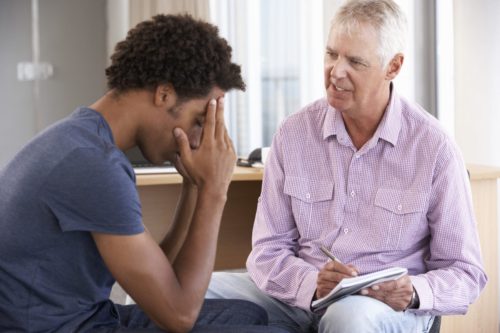On this Veteran’s Day, here is a list of “27 Things to Know” about post-traumatic stress disorder:
- Just because someone experiences a traumatic event does not mean they have PTSD.
- No matter how long it’s been since your trauma, treatment can help.
- To know whether you have PTSD, you should get an assessment from a clinician.
- Sexual assault is more likely to result in symptoms of PTSD than are other types of trauma, including combat.
- Social support is one of the greatest protective factors against developing PTSD after trauma.
- Research suggests that social support is an even more important resilience factor for women than men.
- Trouble sleeping is a core feature of PTSD, so it is important to address sleep problems in PTSD treatment.
- Getting help for PTSD early can prevent problems from expanding to other parts of your life.
- Evidence-based treatments for PTSD include psychotherapy (or “counseling”) and medications.
- Many people with PTSD also experience chronic pain or other physical health symptoms.
- PTSD often co-occurs with depression or other mental health symptoms.
- Having PTSD does not mean you’re “crazy.”
- PTSD does not cause someone to be violent.
- If you have PTSD, you are not alone. With treatment, you can get better.
- In the general population, women are twice as likely as men to experience PTSD at some point in their lifetime.
- Recent research shows that men and women who served in Iraq or Afghanistan have similar rates of PTSD.
- Many people recover completely from PTSD with treatment.
- If someone in your family has PTSD, family therapy can help you learn to communicate and cope together.
- People who have PTSD also have a higher risk for substance use disorders.
- PTSD treatment has been shown to decrease suicidal ideation.
- Treatment is important for the person experiencing PTSD, but it also helps the family and improves relationships.
- PTSD therapists help you understand your thoughts and feelings so you have more control over them.
- Research suggests that variations in a number of genes may be risk factors for developing PTSD after trauma.
- Traumatic brain injury and PTSD have some common symptoms, but they are different diagnoses.
- Technology, like the PTSD Coach mobile app, can help you manage PTSD symptoms.
- The Veterans Administration provides PTSD care at every VA medical center and at many of the larger community-based clinics.
- Getting help for PTSD is problem solving, not a sign of weakness. Take the step.





